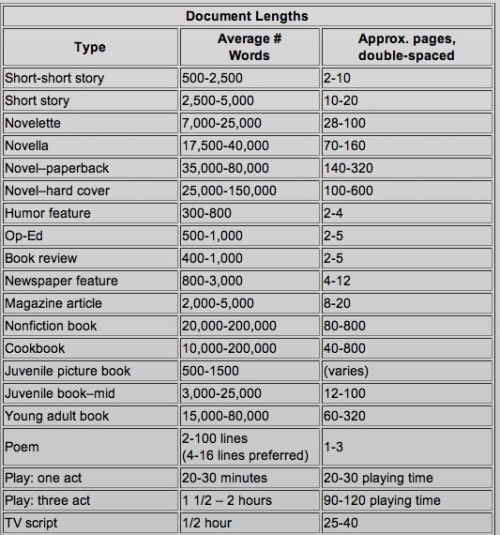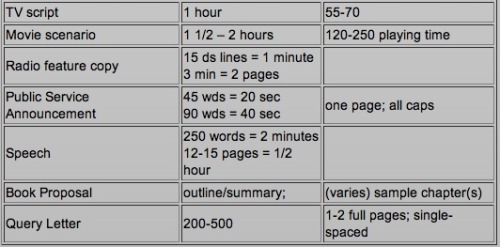Justanothergirlsblog - =A Weird Girl=

More Posts from Justanothergirlsblog and Others
Writing Tip #212
Tighten your sentences. Adjectives and Adverbs should be used only when necessary. Overusing descriptions is a red flag to agents and publishers of a novice writer. Go through your writing and circle all adjectives and adverbs and read it without them. If it works without them, then cut them.
“Don’t listen to yourself; listen to the advice that you give others.”
— Michael Lottner

=Tips for writers=
I used to be a really passionate writer and really enjoyed crafting language but it's been years since I've written anything that's not for school. I really want to start writing again but I don't have any story ideas that I'm excited about. What should I do to start writing again?
When you want to start writing again, but aren’t sure how to start:
1. Read a variety of books.
Various authors, various genres, the more you expand your examples the better because it means exposure to more ideas. Don’t be afraid to take up books you may not like since there’s a great deal of learning to be found in why you dislike something, and the depth it gets you thinking can help contribute to your own ideas. The “spite write” is also a thing, where you hate something, or some part of a thing, so much that you go off and do it yourself.
2. Engage with a writing community.
Every writer likes a different level of engagement, but writing communities can be extra helpful at providing idea discussion. It’s also okay if it takes a while for you to find the right one. Some writers are happy with the ones that are for pure fun and keep away from real critique whereas others want detailed critiques and a push to be better. The community you’re part of needs to align with your goals for writing.
3. Write what you know… so know interesting things.
Blatantly stolen from my own TbaBW post, but if you think your life is too boring for inspiration or you want to write about something but don’t know how, then get yourself out there and learn. Find new experiences, ask willing people about their lives, try new things even if you aren’t sure about them, research new subjects; increase your inspiration and well of knowledge so you can write what you know. You’re limited by your own knowledge and creativity, so work hard to make sure that limit does not exist.
4. Find prompts or guided writing exercises.
A lot of writers use prompts or guided exercises to get their writer's muscles moving. Aside from providing the base idea for you, they don’t require commitment and are just a form of practice, but can be turned into more polished stories if it really works out. The best use of these isn’t just reading them and deciding if you instantly like it or not, but taking some time to really think about how they can unfold.
5. Brainstorm.
While there are times when ideas just come to you, it’s common for creative people to have to brainstorm and put real effort into coming up with decent ideas. Brainstorming activities can look like, but aren’t limited to:
Inspiration from music. Some songs tell stories, some paint a scene, some capture a mood, and some are just good background music. Listening to music can be a good source of inspiration for writing.
Talk it out. Ask your friend and family what kind of stories they like to hear and why, or ask them anything about stories that you think will get them to talk. You may not want to write those exact things, but the dialogue can get some ideas thrown out there.
Inspiration from art. Similar to music, take a look at paintings, sketches, or maybe even dances that can provide something. Especially pay attention to the details and what the artist could potentially by trying to convey.
Ways to Develop Plot Ideas (link embedded) covers more idea generation!
6. Productivity can be worked on.
Most writers naturally go through a cycle of interest and disinterest in their projects or even writing in general. I have these linked posts for general info on increasing productivity:
Tips for Improving Writing Productivity, Pt 1
Tips for Improving Writing Productivity, Pt 2
Tips for Improving Writing Productivity, Pt 3
Tips for Improving Writing Productivity, Pt 4
You may also want to check out the Motivation and Discipline tag since there’s a lot of info related to productivity and getting back into writing, especially when you aren’t feeling so great about it.
7. Don’t be afraid of not being great.
It’s been a while since you’ve written and it’s normal for skills to get rusty. Your skills before may not even have been where you wanted to be, but all you can do is compare yourself to where you once were rather than other writers. Writing is personal journey and can be a tough skill to build, so don’t beat yourself up if you have trouble. You have to be bad at something before you’re good at it.
Good luck with your writing!
————————
Thinking of asking a question? Please read the Rules and Considerations to make sure I’m the right resource, and check the Tag List to see if your question has already been asked. If you can give back, please consider supporting me on Ko-fi or via Venmo Username: JustAWritingAid

“Knowing yourself is life’s eternal homework.”
— Felicia Day


I wanted to double check that “The Cherry on Top” was a short novel or novella and I found this on uphillwriting.org. I think it’s very informative and hopefully you guys will find it useful!
“Start writing, no matter what. The water does not flow until the faucet is turned on.”
— Louis L'Amour (via quotemadness)
I think its amazing that no one knows who you are but you. No one else knows the stories you create, the feelings you have at 3am, the song stuck in your head, your favourite childhood book. So stop allowing people to tell you what you should be or what you are because they don't know.
Classic Book Recommendations For Each Hogwarts House
Gryffindor
The Count of Monte Cristo by Alexandre Dumas
Henry V by William Shakespeare
Beowulf
War and Peace by Leo Tolstoy
Les Miserables by Victor Hugo
Profiles in Courage by John F. Kennedy
The Diary of a Young Girl by Anne Frank
Histories by Herodatus
Democracy in America by Alexis de Tocqueville
Hufflepuff
East of Eden by John Stenbeck
Othello by William Shakespeare
To Kill a Mockingbird by Harper Lee
Twelfth Night by William Shakespeare
Siddhartha by Hermann Hesse
Love In the Time of Cholera by Gabriel Garcia Marquez
White Fang by Jack London
The Great Gatsby by F. Scott Fitzgerald
The Hunchback of Notre Dame by Victor Hugo
A Tree Grows in Brooklyn by Betty Smith
Ravenclaw
Farenheit 451 by Ray Bradbury
The Divine Comedy by Dante Alighieri
The Brothers Karamazov by Fyodor Dostoyevsky
The Brief, Wondrous Life of Oscar Wao by Junot Diaz
Animal Farm by George Orwell
Frankenstein by Mary Shelley
The Odyssey by Homer
Middlemarch by George Eliot
Catch-22 by Joseph Heller
Alice’s Adventures in Wonderland by Lewis Carroll
Slytherin
The Art of War by Sun Tzu
All the King’s Men by Robert Penn Warren
Hamlet by William Shakespeare
The Picture of Dorian Gray by Oscar Wilde
The Autumn of the Patriarch by Gabriel Garcia Marquez
The Prince by Niccolo Machiavelli
Brave New World by Aldous Huxley
A Clockwork Orange by Anthony Burgess
Macbeth by William Shakespeare
Dracula by Bram Stoker
-
 user336 liked this · 2 years ago
user336 liked this · 2 years ago -
 maktub190 reblogged this · 3 years ago
maktub190 reblogged this · 3 years ago -
 sinners-prayer-xx liked this · 4 years ago
sinners-prayer-xx liked this · 4 years ago -
 maryammmm-12 liked this · 4 years ago
maryammmm-12 liked this · 4 years ago -
 washeetapethebear liked this · 4 years ago
washeetapethebear liked this · 4 years ago -
 strangemywritingdesignfriend liked this · 4 years ago
strangemywritingdesignfriend liked this · 4 years ago -
 stardust-in liked this · 4 years ago
stardust-in liked this · 4 years ago -
 rachduncan31 reblogged this · 4 years ago
rachduncan31 reblogged this · 4 years ago -
 emmitt174h liked this · 4 years ago
emmitt174h liked this · 4 years ago -
 its-polka-time-blog reblogged this · 4 years ago
its-polka-time-blog reblogged this · 4 years ago -
 its-polka-time-blog liked this · 4 years ago
its-polka-time-blog liked this · 4 years ago -
 annoyinggothcashdream-blog reblogged this · 4 years ago
annoyinggothcashdream-blog reblogged this · 4 years ago -
 eiawrites liked this · 4 years ago
eiawrites liked this · 4 years ago -
 fryrye34 liked this · 4 years ago
fryrye34 liked this · 4 years ago -
 geff9356 liked this · 4 years ago
geff9356 liked this · 4 years ago -
 teyameanshappiness liked this · 4 years ago
teyameanshappiness liked this · 4 years ago -
 angel-in-reverie reblogged this · 4 years ago
angel-in-reverie reblogged this · 4 years ago -
 muso-library liked this · 4 years ago
muso-library liked this · 4 years ago -
 sanzilies liked this · 4 years ago
sanzilies liked this · 4 years ago -
 nikolaybulavenko liked this · 4 years ago
nikolaybulavenko liked this · 4 years ago -
 bijegodrealnosti reblogged this · 4 years ago
bijegodrealnosti reblogged this · 4 years ago -
 simplyilianaa reblogged this · 4 years ago
simplyilianaa reblogged this · 4 years ago -
 allmylifetroublefollowsme liked this · 4 years ago
allmylifetroublefollowsme liked this · 4 years ago -
 lilfinger liked this · 4 years ago
lilfinger liked this · 4 years ago -
 jlking liked this · 4 years ago
jlking liked this · 4 years ago -
 alexdragnea liked this · 4 years ago
alexdragnea liked this · 4 years ago -
 ms-roberts liked this · 4 years ago
ms-roberts liked this · 4 years ago -
 justanothergirlsblog reblogged this · 4 years ago
justanothergirlsblog reblogged this · 4 years ago -
 justanothergirlsblog liked this · 4 years ago
justanothergirlsblog liked this · 4 years ago -
 sharmasaurus liked this · 4 years ago
sharmasaurus liked this · 4 years ago -
 rheatapkir0119 liked this · 4 years ago
rheatapkir0119 liked this · 4 years ago -
 bem-menina reblogged this · 4 years ago
bem-menina reblogged this · 4 years ago -
 valquiriame liked this · 4 years ago
valquiriame liked this · 4 years ago -
 oscumoss liked this · 4 years ago
oscumoss liked this · 4 years ago -
 jkartike liked this · 4 years ago
jkartike liked this · 4 years ago -
 lostinadreamsomewhere liked this · 4 years ago
lostinadreamsomewhere liked this · 4 years ago -
 shajeed liked this · 4 years ago
shajeed liked this · 4 years ago -
 tgonzalezm liked this · 4 years ago
tgonzalezm liked this · 4 years ago -
 livinlife46 liked this · 4 years ago
livinlife46 liked this · 4 years ago -
 its-me-against-the-world-again reblogged this · 4 years ago
its-me-against-the-world-again reblogged this · 4 years ago -
 its-me-against-the-world-again liked this · 4 years ago
its-me-against-the-world-again liked this · 4 years ago

I'm just a weird girl who likes to read about history, mythology and feminism.
207 posts